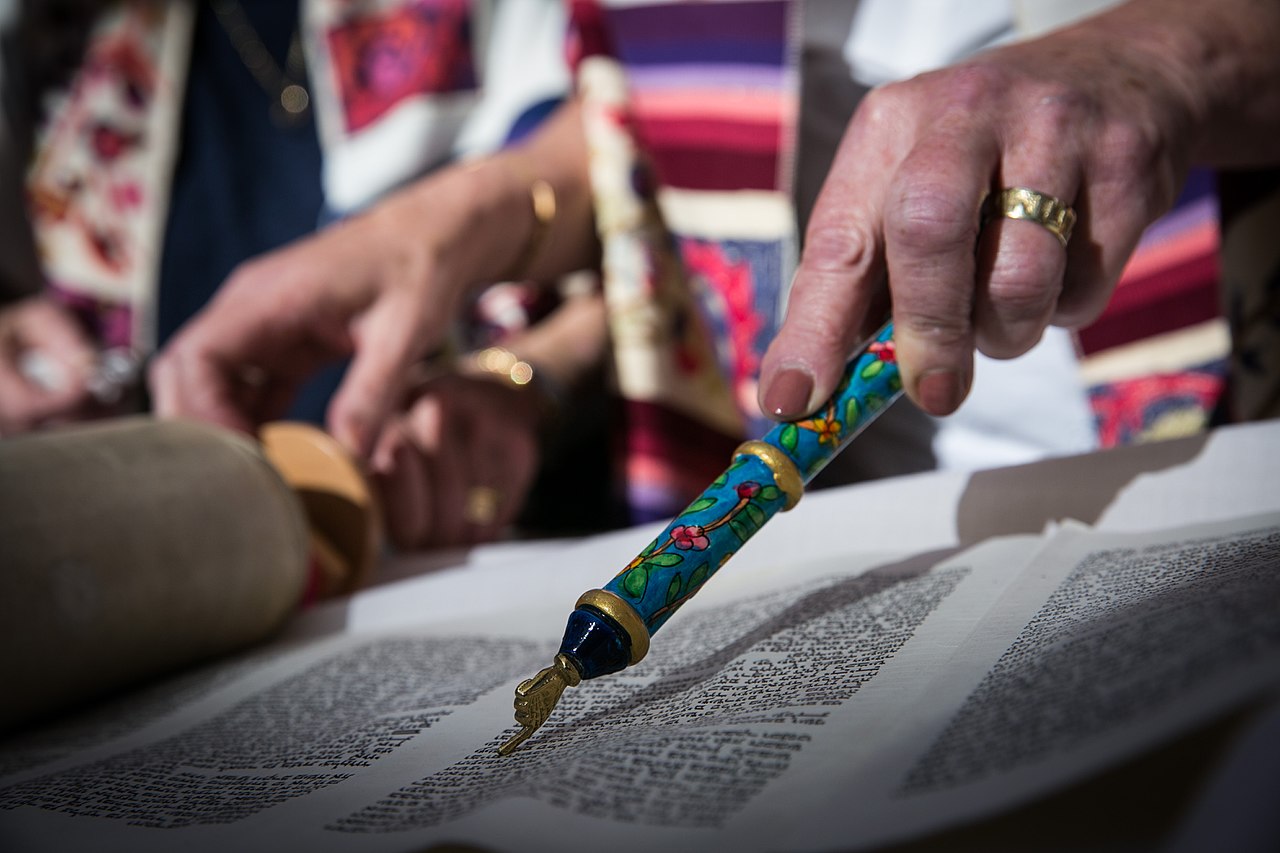This is an archive of special liturgical readings prepared to be read over any Shabbat, at home or at a synagogue, privately or publicly.
⤷ You are here:
👂︎ Liturgical Readings, Sources, and Cantillation —⟶ Readings for Festivals, Commemorations, and Civic Days —⟶ Readings for Days in Jewish Calendars —⟶ Shabbat Readings 📁 Rosh Ḥodesh Readings :: (Next Category) 🡆 Shabbat ReadingsThis is an archive of special liturgical readings prepared to be read over any Shabbat, at home or at a synagogue, privately or publicly. Filter resources by Collaborator Name Paltiel Birnbaum (translation) | Len Fellman (translation) | Wolf Leslau (translation: English) | Isaac Gantwerk Mayer (transcription & naqdanut) | Isaac Gantwerk Mayer (translation) | the Mesorah (TaNaKh) | Marcia Prager | Abba Tsabrah (traditional attribution) | Unknown | Aharon N. Varady (transcription) | Aharon N. Varady Filter resources by Tag Angels | cantillated liturgy | Cantillated readings in English | English Translation | eros | Ethiopian Jewry | Five Megillot | גלגול נפשות gilgul nefashot | joy | קבלת שבת kabbalat shabbat | כבוד kavod | Ketuvim | Liturgical customs of Kabbalists | Lurianic Kabbalah | Mäṣḥäf Ḳədus | Mosheh Rabbenu | North America | parabiblical aggadah | קבלה ḳabbalah | reincarnation | Sabbath Queen | שבת ערבית shabbat arvit | shekhina | שלימות shlemut (completion) | Te'ezaza Sanbat | transtropilation | 13th century C.E. | 20th century C.E. | 21st century C.E. | 51st century A.M. | 58th century A.M. Filter resources by Category Pesaḥ Readings | Midrash Aggadah | Ḳabbalat Shabbat | Se'udah haShlishit | Se'udat Leil Shabbat | Se'udat Yom Shabbat | Shir haShirim (the Song of Songs, Canticles) | Torah Study | the Zohar Filter resources by Language Filter resources by Date Range Resources filtered by TAG: “Five Megillot” (clear filter) Sorted Chronologically (old to new). Sort most recent first? After the recitation of Shir haShirim — which, in some circles, is recited every Friday night — the kabbalists instituted a yehi ratzon, a petition to be recited in the merit of what was just read. In many communities, this petition is recited using the same melodies as the recitation of the scroll itself. As an extension of this custom, here I’ve added cantillation marks to the yehi ratzon after Shir haShirim. Included also is a recitation of the text following said cantillation marks. . . . Categories: Tags: cantillated liturgy, Five Megillot, גלגול נפשות gilgul nefashot, קבלת שבת kabbalat shabbat, Liturgical customs of Kabbalists, Lurianic Kabbalah, קבלה ḳabbalah, reincarnation Contributor(s): Paltiel (Philip) Birnbaum’s translation of The Song of Songs (Shir haShirim) in Ha-Siddur Ha-Shalem (The [Complete] Daily Prayer Book), Hebrew Publishing Company, 1949. . . .
Stable Link:
https://opensiddur.org/index.php?cat=3520
Associated Image: 
Torah reading by women (credit: Yochi Rappeport, license: CC BY-SA) (This image is set to automatically show as the "featured image" in shared links on social media.)
Terms of Use:
Be a mentsch (a conscientious, considerate person) and adhere to the following guidelines:
Additional Notes:
Support this work:
The Open Siddur Project is a volunteer-driven, non-profit, non-commercial, non-denominational, non-prescriptive, gratis & libre Open Access archive of contemplative praxes, liturgical readings, and Jewish prayer literature (historic and contemporary, familiar and obscure) composed in every era, region, and language Jews have ever prayed. Our goal is to provide a platform for sharing open-source resources, tools, and content for individuals and communities crafting their own prayerbook (siddur). Through this we hope to empower personal autonomy, preserve customs, and foster creativity in religious culture.
ויהי נעם אדני אלהינו עלינו ומעשה ידינו כוננה עלינו ומעשה ידינו כוננהו "May the pleasantness of אדֹני our elo’ah be upon us; may our handiwork be established for us — our handiwork, may it be established." –Psalms 90:17
| ||
Sign up for a summary of new resources shared by contributors each week
  |
